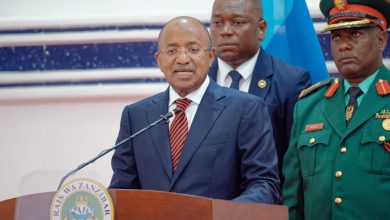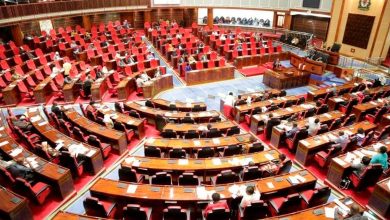Government releases climate risk assessment report

DODOMA: THE President’s Office – Regional Administration and Local Government (PORALG) has launched the National Climate Risk and Vulnerability Assessment Report, aimed at identifying areas most at risk of climate change and informing strategic resilience planning across Tanzania.
The assessment was conducted by the United Nations Capital Development Fund (UNCDF) through its Local Climate Adaptive Living Facility (LoCAL) programme, in collaboration with the European Union (EU) and the governments of Norway, Belgium and Ireland.
Speaking during the launch in Dodoma on Tuesday, Assistant Director at PO-RALG, Engineer Emmanuel Nyanda said the findings have been presented at the local government level in both Mainland Tanzania and Zanzibar, and will be crucial in guiding climate adaptation policies and actions.
“These results will help policymakers, local leaders and citizens implement effective strategies to build resilience against climate change,” said Engineer Nyanda.
He expressed appreciation to UNCDF and its development partners for supporting the government’s efforts in mapping vulnerable areas and identifying appropriate adaptation measures.
Engineer Nyanda emphasised that Tanzania faces growing climate challenges, including increased temperatures, prolonged droughts and frequent floods—conditions that demand urgent and strategic investment to protect communities.
Engineer Nyanda also highlighted the success of the LoCAL project, which has been implemented since 2017 in the districts of Chamwino, Kondoa and Mpwapwa, noting that the initiative has delivered tangible benefits at the grassroots level.
“Building on these successes, the second phase of the project will expand from three to eight councils,” he said.
The new councils set to benefit from the next phase of the LoCAL project include: Mkinga (Tanga Region), Mtama (Lindi Region), Kigamboni (Dar es Salaam), Mafia (Coast Region) and Mtwara Municipal (Mtwara Region).
Ms Aine Mushi, UNCDF’s LoCAL Project Coordinator in Tanzania, said the report provides critical scientific insights and reaffirmed UNCDF’s commitment to building the capacity of local authorities.
“We will ensure that every shilling spent on climate adaptation reaches the most vulnerable communities and contributes to securing the nation’s social and economic future,” said Ms Mushi.
She added that UNCDF continues to enjoy strong collaboration with the government, particularly with district councils implementing the project, collaboration that has already delivered meaningful benefits to local populations.
A representative from the Vice-President’s Office, Mr Sanford Kway, thanked UNCDF for its continued partnership with the government in addressing the impacts of climate change across the country.
The LoCAL programme, implemented by UNCDF in partnership with the President’s Office – RALG and the Vice-President’s Office, aims to strengthen the capacity of local government authorities and communities to adapt to climate change through locally led solutions.





